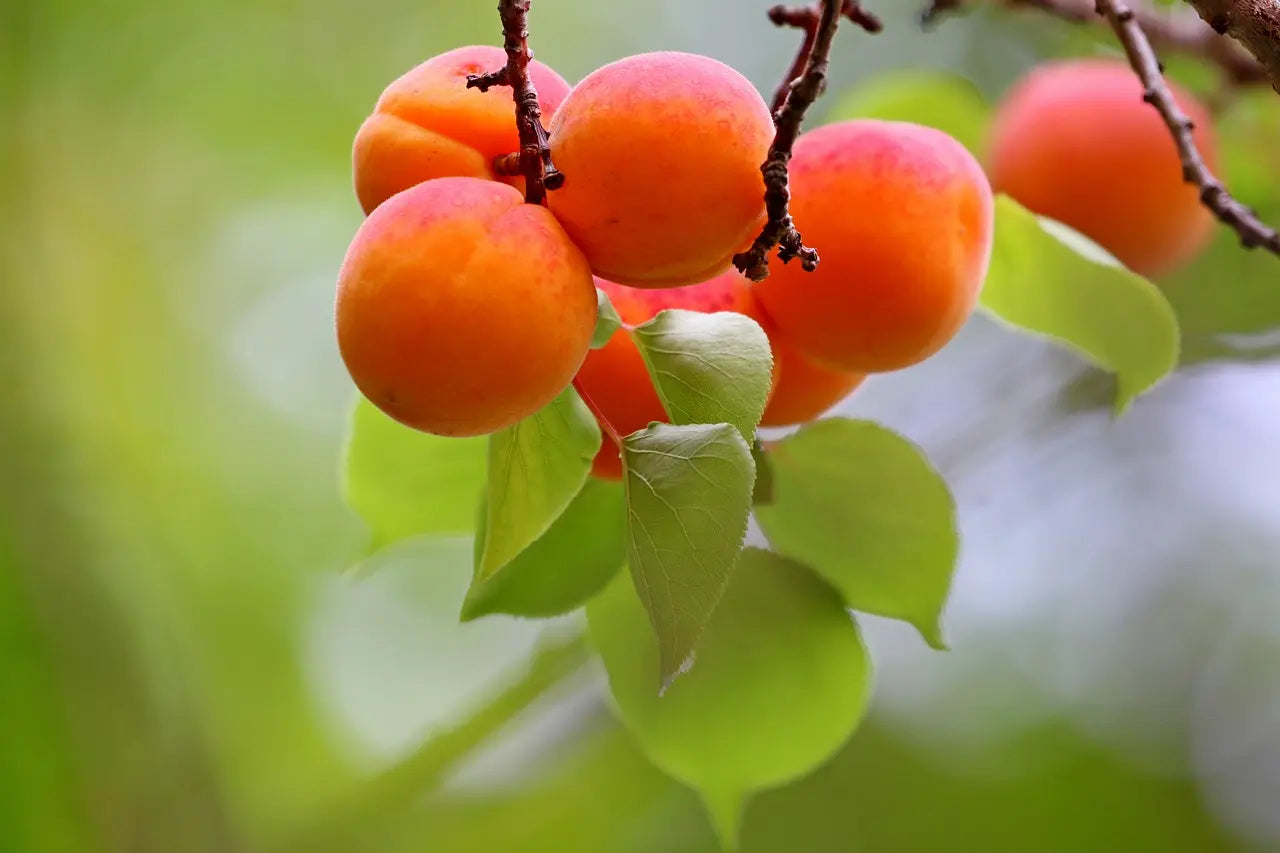-
Delivery from 10 plants to France, Switzerland and Europe
Delivery method -
Fruit Tree Wholesale Supplier
About Us -
Quality Fruit Tree Plants
Technical itinerary
Paviot Apricot Scion bare-root
Paviot Apricot Scion bare-root
The prices shown are our base prices for large volumes. Depending on the quantity ordered and the producers’ pricing scales, the rate may be adjusted upward. Each quote is personalized to ensure you receive a fair price.
Mini order 20 units / Multiple orders 10 units (FRS202412001)
Couldn't load pickup availability
 Buy now and get it delivered when you're ready to plant - Add your desired date to your quote request
Buy now and get it delivered when you're ready to plant - Add your desired date to your quote request
- Delivery from 10 plants to France, Switzerland and Europe

Technical sheet of the Paviot variety
- Color of the fruit flesh: Fine, melting, juicy and very fragrant, yellow
- Skin color: Orange, turning intense red in the sun
- Size and shape: Very large, conical, slightly asymmetrical oval
- Tree Size: Described as a vigorous, medium-producing tree
- Fruit maturity: Between mid-July and mid-August
- Fruit taste: Fine, melting, juicy, very fragrant flesh, of exceptional taste quality
- Earliness of the variety: Semi-late
- Fruiting period: Mid-July to mid-August
- Disease resistance and storage: Good resistance to pests, susceptible to fruit drop, requires healthy, permeable soil. Fruits can be stored for one to two weeks at room temperature and are not recommended for refrigeration.
- Variety Yield: Average productivity, can be erratic
- Is this variety self-fertile? Yes, self-fertile.
- Commercial use: Fresh consumption due to its taste quality.
- Comments: Can be grafted onto Myrobalan or Montclair. It is well adapted to the south of France, is drought-resistant, and appreciates well-drained and fertile soil. It does not like humid regions and excess water in the soil. Flowering is semi-late in mid-March.
Paviot Apricot Tree: An ideal choice for arborists and professional producers in France
Arboriverse, a specialist wholesale supplier of apricot plants , offers the Paviot apricot tree, an old variety renowned for its very large fruit and exceptional flavor. Buying Paviot apricot plants allows growers to benefit from a drought-resistant variety, well-adapted to Mediterranean climates and dry soils.
Origin and benefits of the Paviot apricot tree
Bred in 1880 by Mr. Paviot, this apricot tree is prized for the taste of its fruit and its hardiness. Its late flowering limits the risk of spring frosts, an asset for regions exposed to harsh winters. It is particularly suited to hot and dry climates thanks to its drought tolerance. Its cultivation is interesting for fresh consumption and for artisanal processing, particularly into jams and pastries.
Agronomic and technical characteristics
The Paviot apricot tree is a vigorous tree with an irregular, spreading habit. It requires regular pruning to balance its structure and facilitate harvesting. It reaches full maturity in three to four years and fruits between mid-July and mid-August. Self-fertile, its yield can, however, be improved by cross-pollination with other late-flowering varieties.
Its fruits are remarkable for their very large size, their diameter varying between 4 and 6 cm. Their slightly asymmetrical conical shape gives them a distinctive appearance. Their orange skin has intense red hues under the effect of the sun. The yellow flesh, fine and melting, is particularly juicy and fragrant. Its balance between sugar and acidity makes it a benchmark among high-end apricot varieties.
The fruits should be consumed quickly after harvest. They can be stored for one to two weeks at room temperature but do not tolerate cold storage well, which alters their aroma.
Disease resistance and growing conditions
The Paviot apricot tree is hardy and resistant to pests, but requires monitoring against common diseases such as brown rot and bacterial canker. Its productivity can be erratic and requires careful cultural management to ensure regular harvests.
This fruit tree adapts to calcareous soils and dry, stony, or well-drained terrain. It tolerates a certain compactness of the soil but fears excess moisture. Its low risk of root asphyxiation allows it to be grown on sandy or slightly compacted soils. It is particularly resistant to drought, making it ideal for regions with hot, arid summers.
In France, several rootstocks are recommended to optimize its development. The franc apricot tree is adapted to dry and poor soils, offering good resistance to drought. The more versatile Myrobalan tree is suitable for varied soils but can delay fruit ripening. The Montclair tree, meanwhile, represents a good compromise between vigor and early fruit set.
Commercial assets and profitability
The Paviot apricot tree is particularly sought after for its high flavor and exceptional size. Its fruit, appreciated for fresh consumption and artisanal processing, is popular in specialty markets and local supply chains. It is prized by jam makers, pastry chefs, and producers of high-end preserves.
Its late ripening cycle allows for an extended marketing period beyond that of early varieties, thus offering an economic advantage to producers. However, its productivity can vary from year to year, requiring careful crop management to maximize yields.
Why choose Arboriverse for your Paviot apricot plants?
Arboriverse, a specialist wholesale supplier of apricot plants , offers professional-quality plants, selected to guarantee optimal production. Thanks to its in-depth technical expertise, Arboriverse supports producers in the selection of rootstocks and the optimization of their orchards.
Buying Paviot apricot plants from Arboriverse means choosing a trusted partner, capable of supplying plants tailored to the requirements of professional arborists. Contact us today for advice and to order your plants.
-
Paviot Apricot Scion bare-root
Regular price €11,72 EURRegular priceUnit price / per -
Paviot Apricot Spindle Tree bare-root
Regular price €13,66 EURRegular priceUnit price / per -
Paviot Apricot High Half-Standard Tree 6-8 cm diameter bare-root
Regular price €20,44 EURRegular priceUnit price / per



